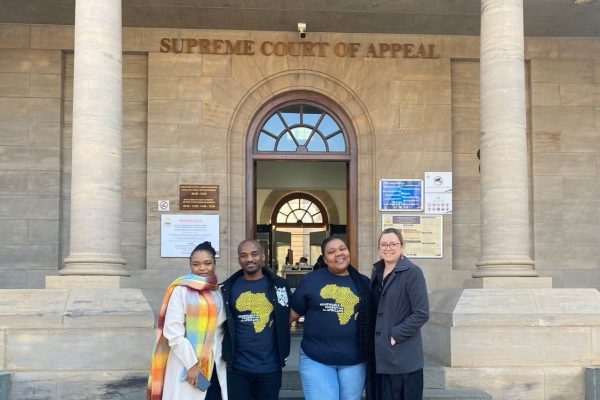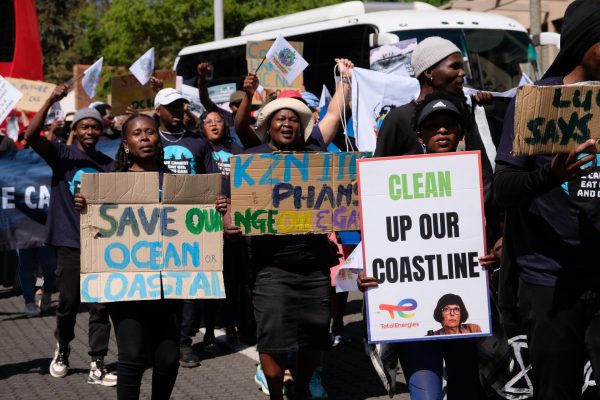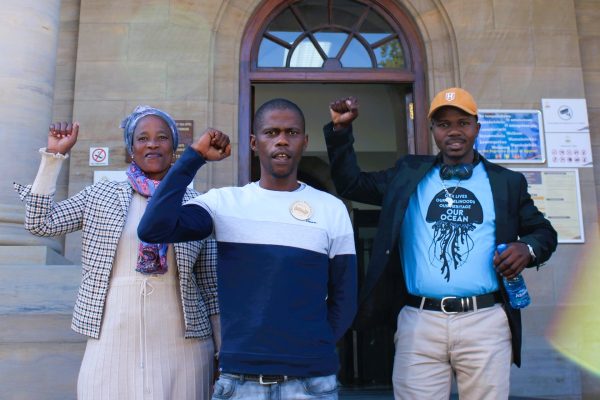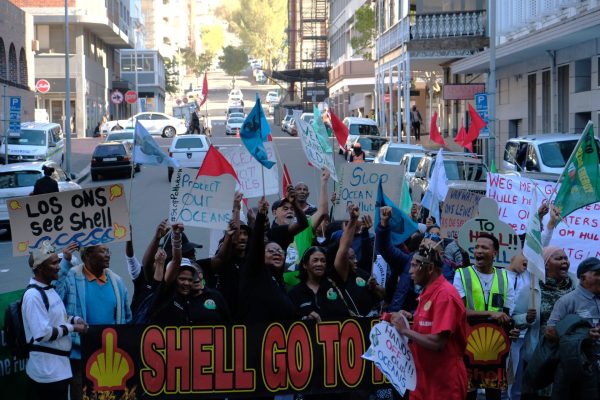28 November 2022, Gqeberha: Today, the Eastern Cape High Court reserved judgment in the leave to appeal application from the Minister of Mineral Resources and Energy, Impact Africa and Shell. They seek to appeal the historic judgment of the Makhanda High Court, which was handed down on 1 September 2022, and found that the exploration right granted by the Minister to allow Shell to conduct seismic surveys off the ecologically sensitive Wild Coast of South Africa was unlawful.
The Wild Coast communities, Sustaining the Wild Coast, All Rise, Natural Justice and Greenpeace Africa, also sought leave to cross-appeal the court’s decision not to consider whether Shell and Impact Africa required an Environmental Authorisation prior to commencing their seismic survey. This is because a declarator will provide clarity on the scope and nature of the obligations under the National Environmental Management Act (NEMA), as well as the Mineral and Petroleum Resources Development Act (MPRDA), which will then give effect to Section 24 of the Constitution.
In the September judgment, the court declined to rule on the declarator as the court found it unnecessary since the exploration right was set aside. Prior to today’s hearing, the parties agreed that the matter is of immense public interest and amounts to a “compelling reason” why leave to appeal should be granted. However, argument focused on whether the High Court should refuse to grant leave to appeal on two preliminary issues which if successful, would require the Supreme Court of Appeal (SCA) to uphold the granting of the exploration right without considering the merits of whether or not it should have been granted, as well as a third issue relating to the required standard of consultation.
The two preliminary issues were the delay in the bringing of the review and whether the communities and the NGO partners should have pursued an internal appeal to the Minister prior to approaching the Court as is required by the Promotion of Administrative Justice Act (PAJA).
On whether there was an unreasonable delay in instituting the litigation: The high court had found that the communities and their NGO partners had instituted action soon after becoming aware that the exploration right had been granted and the seismic survey was about to commence.
Advocate Nick Ferreira (representing Natural Justice and Greenpeace Africa) pointed out that even though the parties had all agreed that the case raised issues of significant public importance, the court was still required to consider whether or not the delay argument had any prospects of success.
Regarding consultation, Advocate Chris Loxton SC for Impact Africa conceded that Impact Africa, “could have done better” by publishing notices in isiXhosa and not just in English and Afrikaans, but that they had complied with the regulations. Furthermore, he argued that actions taken in 2013 should not be judged against today’s standards, as the standards have changed.
The Minister, Shell and Impact Africa all argued that the SCA might differ from the high court and if it decided that the public participation process, and notifications published were adequate, it might conclude that the case should not be heard because it was not instituted within 180 days of the date on which the public ought reasonably to have become aware of the granting of the exploration right.
Advocate Nikki Stein (representing the Wild Coast communities) emphasised that the community applicants are distinguishable from the general public as they have recognised customary fishing rights and are dependent on their surrounding environment to sustain themselves and make a living. Additionally, the community applicants have spiritual beliefs and cultural connections to the ocean — this of course gives them a specific interest in Shell’s survey, but despite this they were not given adequate notice of the survey.
The second issue was whether or not an internal appeal to Minister Mantashe should have been made before instituting proceedings in the high court (i.e. whether the applicants had complied with their duty to exhaust internal remedies before going to court). The high court had found that it was unnecessary to have appealed to Minister Mantashe because he had made public statements that gave rise to a reasonable apprehension of bias.
Advocate Ferreira pointed out the Minister had not contested this finding and that only Shell was persisting in the argument that an appeal to the Minister should have been made. Furthermore, the Minister made the decision to oppose the interdict which was sought by the community applicants and their NGO partners, when he could have simply abided by the decision of the court.
Judgment has been reserved and we expect to receive the Court’s reasons on whether the appeal should be granted by the end of the year.
ENDS
Find the court papers here







